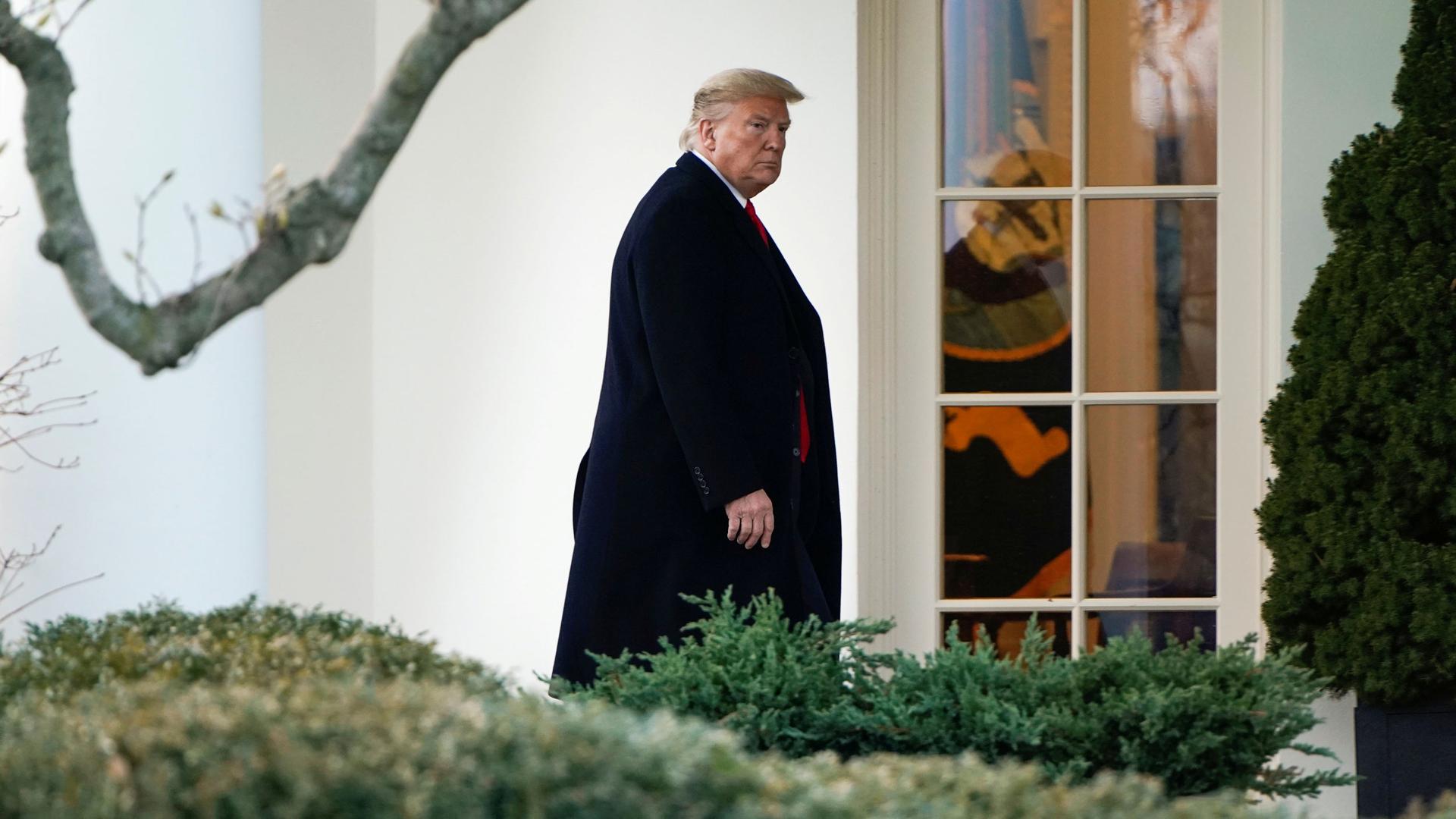Foreign aid cuts could make US less secure
US President Donald Trump walks to the Oval Office as he returns from a day trip from North Carolina at the White House in Washington, DC, Feb. 7, 2020.
It is budget time again in Washington.
The White House put out its annual spending blueprint Monday, and once again, the Trump administration proposes dramatically slashing funding for foreign aid. Administration officials say it’s part of an effort to decrease the national debt. At the same time, the budget proposal does allocate some extra dollars for border security.
Trump, a Republican, sought in his budget proposal last year to slash foreign aid but faced steep resistance from Congress and did not prevail.
The president’s latest blueprint for administration spending proposals is unlikely to be passed this year by the Democratic-controlled House of Representatives, particularly given the upcoming election cycle.
Sarah Bermeo is associate director at the Duke Center for International Development. Bermeo spoke with The World’s Marco Werman about what the proposed cuts to foreign aid might mean.
Marco Werman: As in previous years, the Democratic-controlled House of Representatives is expected to vote against the proposed cuts. If it’s likely not going to pass, why does it matter that Trump has proposed it? I mean, how does this proposal impact our relationships around the world?
This administration and each budget that it has sent to Congress has proposed dramatic cuts to foreign aid. Each time Congress has pushed back, and yet the administration still keeps proposing the cuts. It really suggests that this is part of the Trump administration’s pulling back from interactions with the rest of the world. Every year, these budget cuts get overturned. And yet the fact that he keeps proposing them suggests that he really is sending a signal that he does not support foreign aid.
From 2017: So we slash US foreign aid. But why?
And Republicans, how do they feel about these proposed cuts to foreign aid?
The cuts that were proposed today are very similar to cuts that have been proposed in previous budgets by this administration. And in each time, members of Congress from both parties have pushed back against these with bipartisan support. We may be in a potentially different situation post-impeachment, but as recently as August of last year, strong supporters of President Trump, including Sen. Lindsey Graham, were pushing back against proposed cuts, saying that cuts to foreign aid would undermine significant security and anti-terrorism efforts.
Without the cuts, how does the current US foreign aid spending compare to other wealthy countries?
The United States spends less than two tenths of 1% of GDP on foreign aid. That puts us in the neighborhood of countries like Portugal or Estonia, and well behind many of our allies, such as the United Kingdom, Germany and France, who spend a significantly larger portion of their GDP on foreign aid.
Related: With less foreign aid, Thai clinic struggles to serve migrants and refugees from Myanmar
When we’re looking at a proposed cut of something close to $12 billion in this part of the budget — how significant are those cuts when it comes to actual savings?
In terms of our overall US budget, they’re miniscule. In terms of the foreign aid budget, they are significantly important. While this amount of money is actually quite small from the US budget perspective, for a small, poor country the amount of money we’re giving them can be quite significant. And so it can be a relatively inexpensive way to have a big impact in another place.
What do we not get in intangible dividends when we don’t spend a reasonable amount of money, like matching other wealthy countries around the world?
Part of it, of course, is where we stand with other countries and our ability to pressure them to spend money. If we’re not seen as doing our fair share in terms of our percent of GDP, we don’t really have much to pressure them on.
Related: How the US distributes $1.3 billion in aid for women around the world
Does that kind of entail a race to the bottom if we’re not spending and other countries follow suit? Is that bad news for countries that are actually in need of that foreign aid?
So far, it hasn’t seemed to entail a race to the bottom. If anything, some small countries are very proud of the amount of money that they spend on foreign aid and believe that that gives them some moral leadership authority over other countries like the United States, which spend a much smaller proportion of our GDP on foreign aid. This could be a very shortsighted way of thinking about our interactions with developing countries and can lead to long-term problems that pose security threats. There’s the oft used quip by former Gen. [James] Mattis: If you spend less money on foreign aid, you need to buy more ammunition in the long term. In the last year, when foreign aid budget has been cut, we’ve seen letters cosigned by over a hundred former US military personnel pushing back on the cuts, saying that they will make the United States less secure.
This interview has been edited and condensed for clarity.
